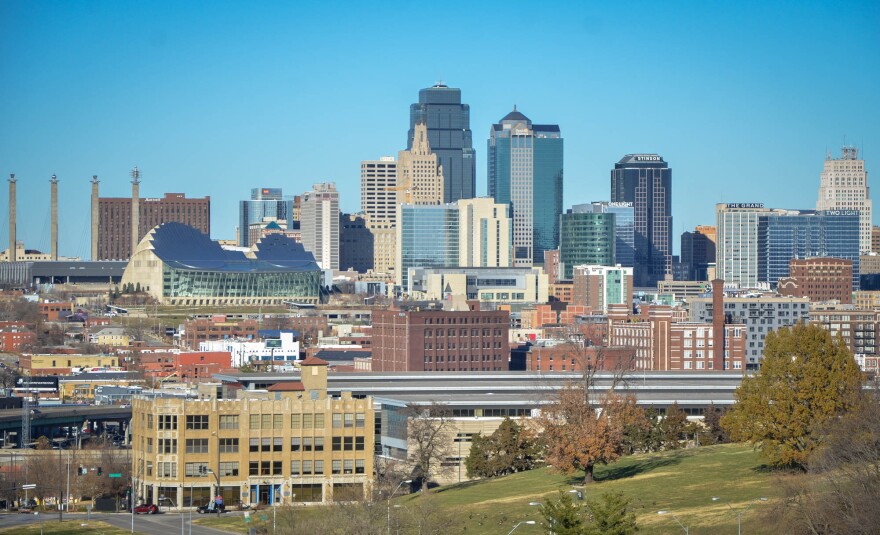A new streetcar running east to west, a direct rail line to the airport — these are just two big ticket projects Kansas City could pursue in the coming years following a partnership between the city and the U.S. Department of Transportation.
The Emerging Projects Agreement will support several infrastructure projects throughout the city — some of which have been talked about for years but never acted on. The city will work with the Build America Bureau to help obtain financing for infrastructure projects that altogether total $15 billion.
The agreement, which was signed on Tuesday, does not give Kansas City a blank check for $15 billion, but rather opens the door for the city to access resources like federal loans and grants to get projects off the ground. The Build America Bureau can also help Kansas City with project planning, officials said.
“Every mayor, every council member, every city has an almost endless wish list of projects and ideas,” said Kansas City Mayor Quinton Lucas. “The biggest challenge usually is, how are we gonna pay for it?”
These are the projects that could come out of the partnership with DOT, and the proposed costs of each:
- Reconnecting neighborhoods east of Troost that are divided by Highway 71, $1.6 billion
- Reconnecting the Westside, which is divided by Interstate 35, $1.5 billion
- Bi-state streetcar to run from the University of Kansas Medical Center in Kansas City, Kansas in the east to the Truman Sports Complex in the west, $1.5 billion
- A 21-mile fixed rail line for travelers going between downtown Kansas City and the Kansas City International Airport, $10.5 billion
- Bridge repair or replacement across the city, $147 million
- Safety improvements and construction on the Blue River Watershed, $123 million
- Vision Zero improvements to reduce fatal crashes and traffic injuries in the city’s most dangerous streets and intersections, $75 million
- South Link Loop to place an urban park atop I-670, $314 million
Kansas City is the second city in the country to form such an agreement with the Department of Transportation. Austin was the first city to do so earlier this year, to support expanding its public transit network and improving its airport.
Lucas said the partnership with the Build America Bureau will focus on communities that have been divided and cut off because of past infrastructure decisions, like the building of highways.
“Time and time again, we have seen the construction of highways disproportionately harm communities of color, displacing families like my own, cutting residents off from resources and opportunities, or exposing children and families to the negative environmental impacts of highways,” he said.
Lucas said the agreement with the Department of Transportation will help fast-track support and give the city priority access on some of its more expensive projects. The partnership will also allow the city to work with engineers and project designers.
“Usually we talk about one big project at a time — one airport, one streetcar, one riverfront development,” Lucas said. “What I think we’re recognizing with the growth of Kansas City is we need all of this moving at once. This allows us to have the capacity to do it.”
Councilmember Eric Bunch, who represents the 4th District, said the partnership will allow the city to leverage other kinds of funding from the federal government.
“It's gonna force us to be more futuristic and big picture-thinking,” Bunch said. “We can't shy away from the big ideas, but we also have to lean in hard to long-range planning and think about, what does the future of Kansas City really hold for us?”
Some of the projects are already in progress, like efforts to reconnect the Black and Latino communities torn apart by major highways.






